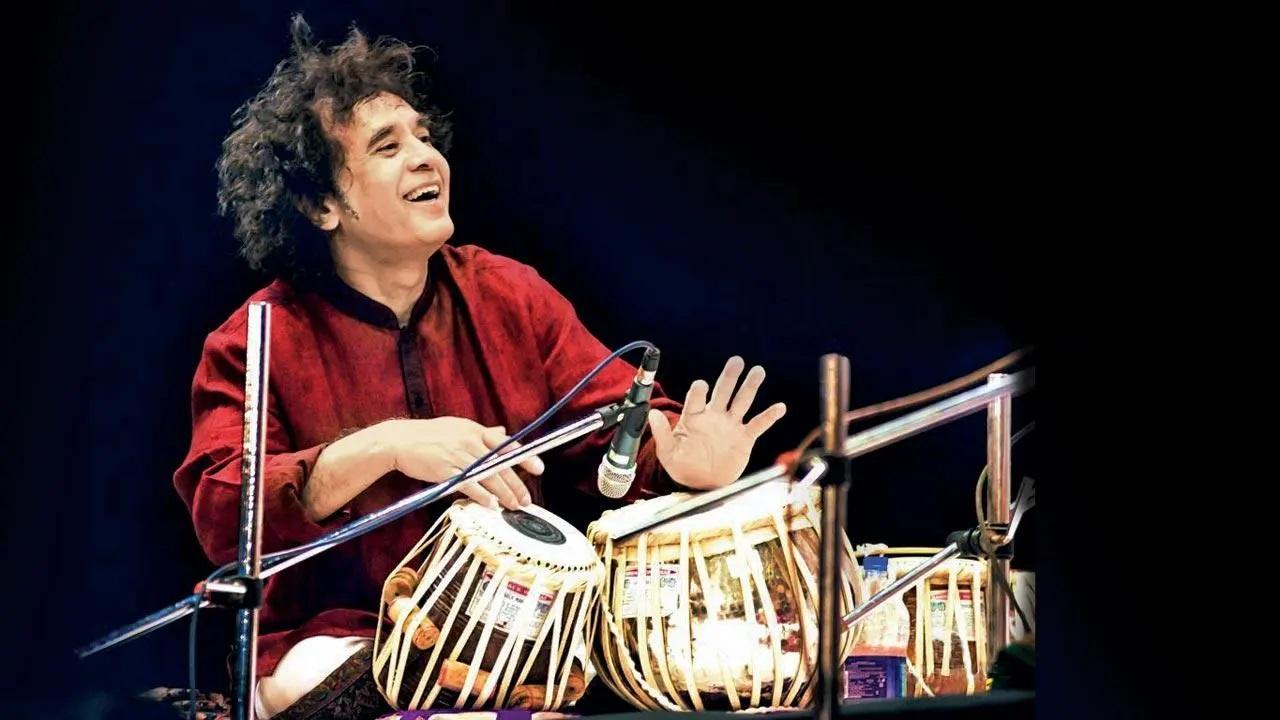In an exclusive chat with Mid-day.com, Ustad Zakir Hussain discusses his upcoming collaboration with NCPA for the Symphony Orchestra of India's season with flautist Rakesh Chaurasia and sitarist Niladri Kumar, reminisces about a special moment in Mumbai, and explores the growing popularity of tabla as a versatile percussion instrument worldwide

For the upcoming Symphony Orchestra of India season at the NCPA, Zakir Hussain has composed a triple concerto with flautist Rakesh Chaurasia and sitarist Niladri Kumar. Photo Courtesy: Mid-day file pic
UNLOCK FULL ACCESS
Buy now to read the full story.
For Just ₹29/-
Already a member? Login
For any queries please contact us: E-mail: support@mid-day.com
 Subscribe today by clicking the link and stay updated with the latest news!" Click here!
Subscribe today by clicking the link and stay updated with the latest news!" Click here!








